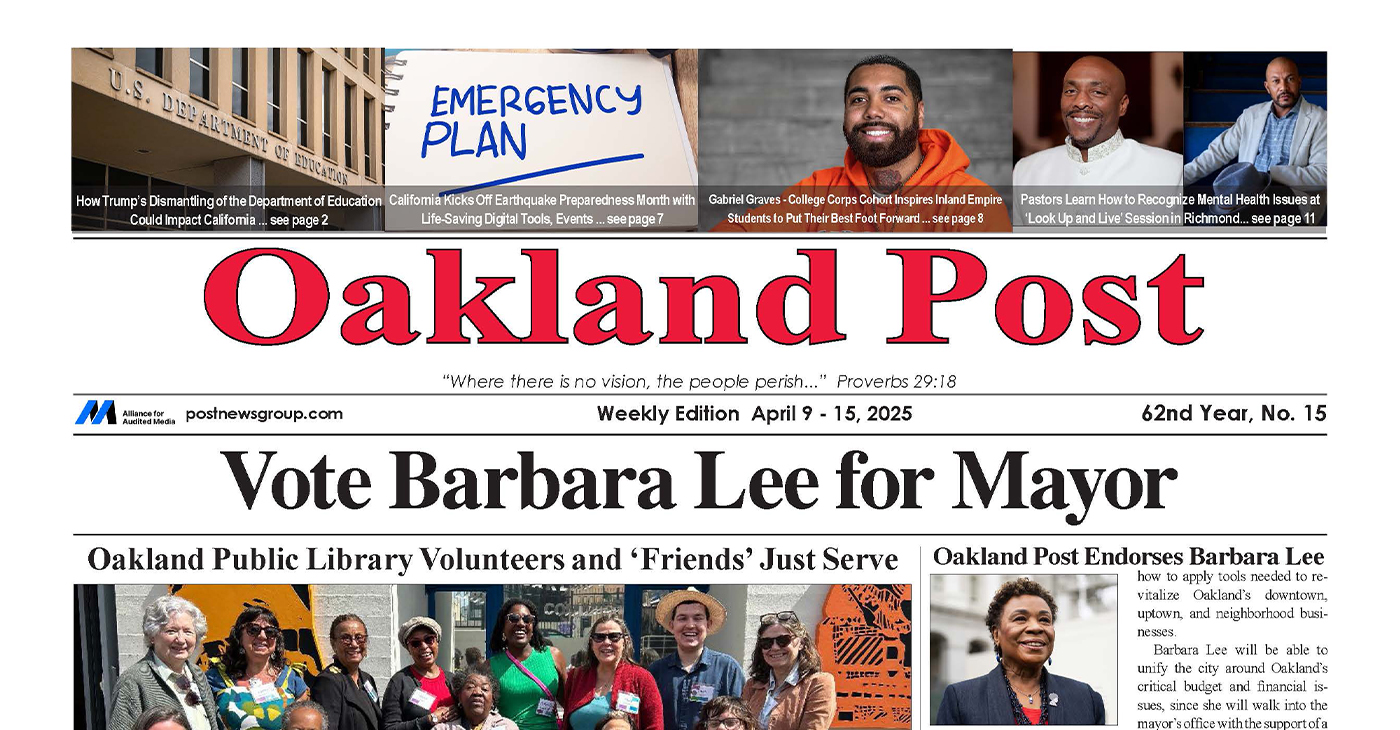Entertainment
Book Review-“The Parker Sisters: A Border Kidnapping”
Your neighbors said they’d keep an eye on your house for you this summer.
They’d get the mail in, and grab the newspaper while you were on vacation. They’d do everything for you – and, as in the new book “The Parker Sisters: A Border Kidnapping” by Lucy Maddox, you should be glad if they watch your children, too.
Along the border between Pennsylvania and Maryland , Thomas McCreary “earned a reputation” as slave catcher, did jail time in 1849 for kidnapping, and was mistrusted by many, Black and white.
Still, he’d managed to find work as a mail carrier in both states, which may’ve given him opportunity to observe the comings-and-goings of Elizabeth and Rachel Parker, two free Black children.
Elizabeth, somewhere around 10 years old, was a headstrong, “difficult” child who’d left (or been kicked out of) her family’s home years before and had worked and lived with a series of white families.
The latest was near-destitute; Maddox hypothesizes that Elizabeth ’s presence in the Donnelly household may have been on purpose, so that McCreary might have an easier chance to snatch her.
Two weeks later, Elizabeth ’s older sister, Rachel, was taken in broad daylight, right in front of the family who employed her.
Rachel’s abduction, says Maddox, probably made neighbors notice that Elizabeth, who was already on her way to a slave auction in Baltimore, was gone.
The man who employed Rachel, Joseph Miller, was outraged over her kidnapping. There had been similar trouble before nearby; the Federal government and individual states had long argued over the laws governing escaped slaves, free Blacks, and slave catchers who generally lied about both.
Miller and his neighbors sprang into action and, says Maddox, “Within 24 hours, the abductions of the Parker sisters would no longer be local matters.”
Neither would they be resolved happily or quickly. Says author Lucy Maddox, Rachel and Elizabeth spent months in jail, while their legal status and identities were resolved.
In the meantime, one man lost his life and another got off “scot-free.”
I’m normally not a fan of books that offers dozens of names to keep track of, but that profuseness somehow works in “The Parker Sisters.”
That may be because Maddox explains in detail the significance of what happened by telling the history behind the laws that made this event possible (and illegal).
Readers will appreciate the story’s movement between North and South, and the clarity of explanation, even on the smallest of details. There are some big surprises in here, too – particularly in what happened to Elizabeth Parker.
On the matter of murder, Maddox is rather like a detective, which is another well-done aspect of this book. Officials tried to explain the death as a suicide, but she walks readers through events and clues to prove otherwise.
Despite all that’s appealing, and because it’s packed with a lot, this isn’t an easy book to read – but it’s worth it.
If you’re a lover of a good tale or a historian, particularly, “The Parker Sisters” is a book you’ll want to keep your eyes on.
“The Parker Sisters: A Border Kidnapping” by Lucy Maddox, c 2016, Temple University Press, $28.50; 256 pages.
Activism
Oakland Post: Week of April 23 – 29, 2025
The printed Weekly Edition of the Oakland Post: Week of April 23 – 29, 2025

To enlarge your view of this issue, use the slider, magnifying glass icon or full page icon in the lower right corner of the browser window.
Activism
Oakland Post: Week of April 16 – 22, 2025
The printed Weekly Edition of the Oakland Post: Week of April 16 – 22, 2025

To enlarge your view of this issue, use the slider, magnifying glass icon or full page icon in the lower right corner of the browser window.
Activism
Oakland Post: Week of April 9 – 15, 2025
The printed Weekly Edition of the Oakland Post: Week of April 9 – 15, 2025

To enlarge your view of this issue, use the slider, magnifying glass icon or full page icon in the lower right corner of the browser window.
-

 Activism3 weeks ago
Activism3 weeks agoOakland Post Endorses Barbara Lee
-

 Activism4 weeks ago
Activism4 weeks agoOakland Post: Week of March 28 – April 1, 2025
-

 Activism3 weeks ago
Activism3 weeks agoOakland Post: Week of April 2 – 8, 2025
-

 #NNPA BlackPress3 weeks ago
#NNPA BlackPress3 weeks agoTrump Profits, Black America Pays the Price
-

 Activism2 weeks ago
Activism2 weeks agoOakland Post: Week of April 9 – 15, 2025
-

 #NNPA BlackPress3 weeks ago
#NNPA BlackPress3 weeks agoHarriet Tubman Scrubbed; DEI Dismantled
-

 #NNPA BlackPress3 weeks ago
#NNPA BlackPress3 weeks agoLawmakers Greenlight Reparations Study for Descendants of Enslaved Marylanders
-

 #NNPA BlackPress3 weeks ago
#NNPA BlackPress3 weeks agoTrump Targets a Slavery Removal from the National Museum of African-American History and Culture














































